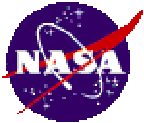|
|
|
|
|
|
|
|
|
|
|
|
|
|
|
|
|
|
|
|
This presentation began with a description of the worlds first computer. Colossus was an element of our success in defeating the Germans in W.W.II, it provided the allied commanders with German positions and tactics. It saved hundreds of thousands of lives by allowing the allied commanders to move their men out of harms way. The constant flow of information supplied station X invariably linked the worlds of information and technology. Today military units around the world utilise technology to save lives and plan strategies.
In the 1960's Scientists and engineers corresponding over the internet's grand-parent helped send men to the moon. Computers similar to the Mark One
|
|
|
|
|
|
|
|

|
|
|
|
|

|
|
|
|
|
crunched the immense sums needed to predict and plot the rockets' course around the solar system. After landing seven Apollo Rockets on the moon, NASA decided to create a reusable launch vehicle. Using massive super-computers the engineers at NASA designed the familiar space shuttle. Now after more than 88 missions and 5 space shuttles NASA makes the next move. Together 16 different countries are going to construct modules for the largest
|
|
|
|
|
|
|
|
|
|
|
|
|
|
and most technologically advanced space craft ever, the international space station. The concept, design were created on a computer, and the newest technology comes in to contact for this exceedingly complex assignment. The raw data that this orbiting laboratory will provide will have our earth based scientists pulling their hair out to decode and turn this data into information, that then can be used to further and better human life.
|
|
|
|
|
|
|
|
|
|
|
Information Technology, the buzz word for the new millennium. An exceedingly diverse field covering electronics, systems design, systems interaction, information processing, and just about any other discipline related to computers in any way that could be of any help. As technology has advanced so has the volume and speed of information. The internet, the worlds greatest and largest free information store and retrieval service ever to have existed continues to grow daily. There exists now more information on the internet, more words, more information than in all of the books in all of the libraries in the US combined. It is estimated that each day more than 1000000 users log on to the internet for the first time, and being a user who has been connected for 7 years one can honestly say that a lot has changed. Better information make the internet less the domain of crackpots and more the domain of PhD's. Richer content and a more immersive experience make the internet more worthwhile. From the late days of the pony express the exponential
|
|
|
|
|
|
|
|
|
|
|
growth that technology has been afforded allows everything that touches it to change in a new, exciting an meaningful way. The information revolution which began 60 years ago continues to happen. As the world evolves around us, as our paradigms shift, as technology takes a greater role in our lives, we will cease to be what we once were and we will change. The revolution continues, and will continue just as human-kind continues and continues to evolve.
|
|
|
|
|

|
|
|
|
|
|
|
What does this mean for the future of human-kind, and the future of technology? Well nobody knows for sure what the final outcome will be, what is known is reassuring. As we grow and evolve all that we create and maintain will evolve around us. The final outcome occurs when we cease to evolve, and since human life thrives on adaptation, we will continue to evolve and so will technology. No doubt robotics, cybernetics, and organic computers lie in our future, endowed with artificial intelligence these thinking machines may even overshadow us, but only if we let them. Although a technological Frankenstein may await us, we must trust that our technology being endowed with the basest essence of what being human is like will continue mush as we would have.
|
|
|
|
|
|
|
|

|
|
|
|
|
|
|
|



